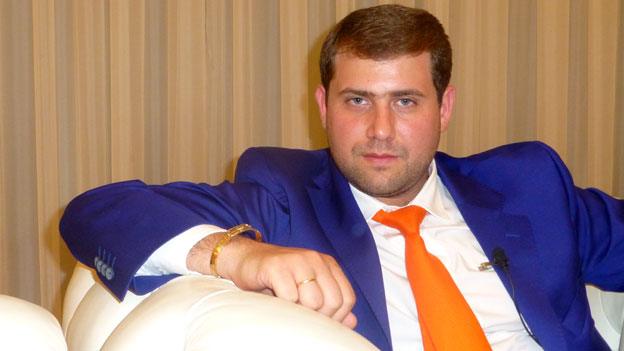Moscow threat as Moldova expels five Russian diplomats
- Published
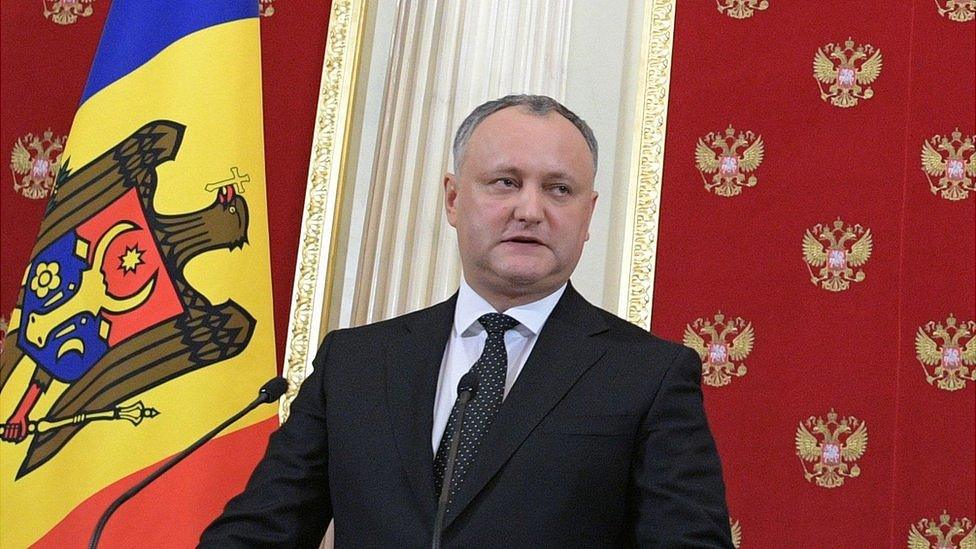
Moldovan President Igor Dodon sees close ties with Russia as a priority
Russia has condemned Moldova's decision to expel five of its diplomats, calling it a move against the country's pro-Russian president.
Russia's response will be "quite harsh", Russian Deputy Foreign Minister Grigory Karasin said.
Moldova's pro-EU government announced the expulsions on Monday, without giving a reason. It is one of Europe's poorest countries and gets EU funding, external.
Moldovan President Igor Dodon called the move "outrageous".
"This has most likely been done on orders from the West, maybe even from across the ocean, by those who are worried that a constructive and effective dialogue has finally been found between the presidency and the Kremlin," he said.
It was an "unfriendly step" against a "strategic partner", he wrote on Facebook, external. He was elected president in November, after pledging to restore close ties with Russia.
The Russian ambassador was told that the five diplomats - not yet named - must leave Moldova within 72 hours.
Mr Karasin called the move "a deliberate blow against the intensification of Chisinau-Moscow relations, including against President Dodon's positions".
Spying investigation
In March a former Moldovan MP, Yuri Bolbochan, was arrested and accused of treason for allegedly having passed secrets to an aide to the Russian military attache.
The aide - named by Russian media as Alexander Grudin - is reported to be among the five diplomats ordered to leave Moldova.
Moldova signed a far-reaching association agreement with the EU, external in 2014, and Russia promptly imposed import restrictions on the country's agricultural produce.
Russian troops are stationed in the breakaway Trans-Dniester region, which is economically dependent on Russia and defies the Moldovan government in Chisinau.
In 2015 Moldova was rocked by a huge fraud case, when more than €1bn (£867m; $1.1bn) disappeared from three banks.
The conflict in neighbouring Ukraine has raised tensions in Moldova, an ex-Soviet republic that Russia sees as part of its sphere of influence.
- Published4 November 2024
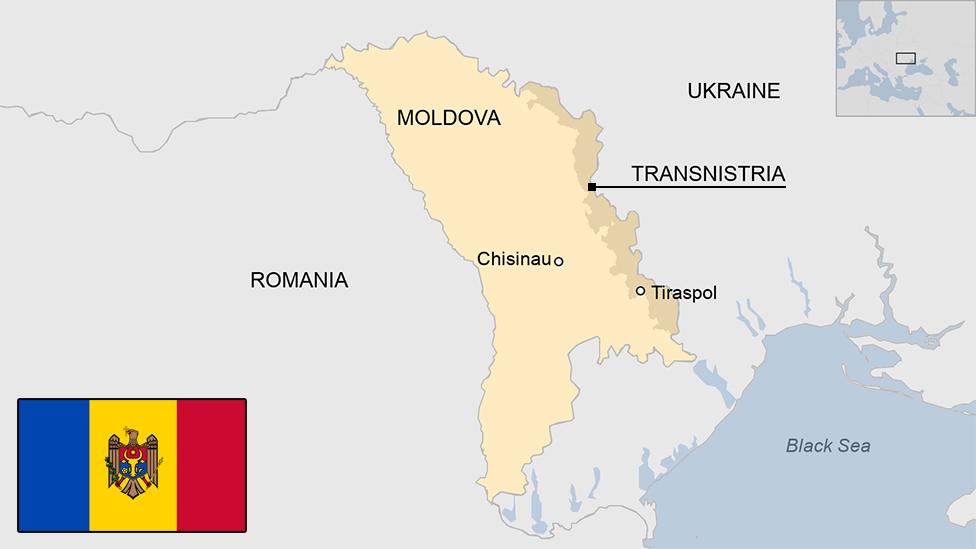
- Published14 November 2016
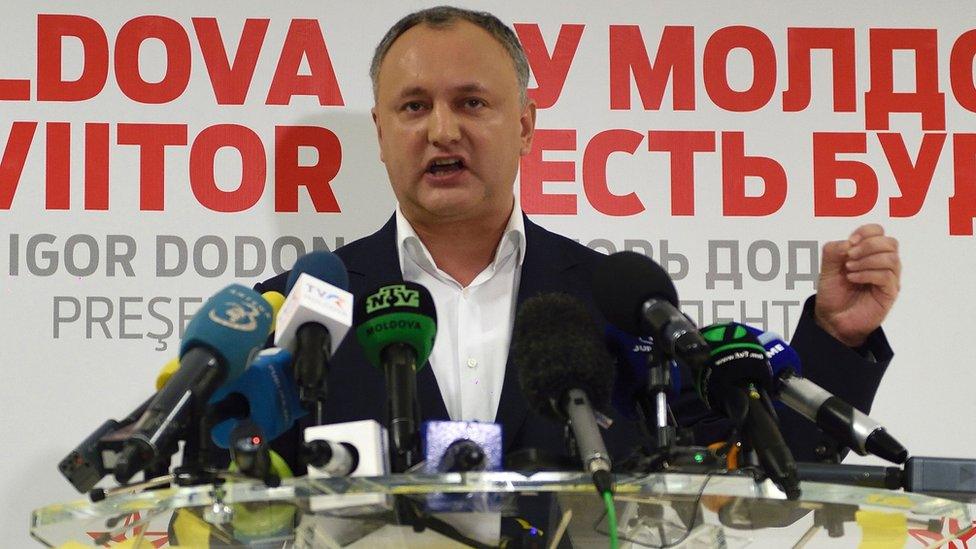
- Published27 January 2016
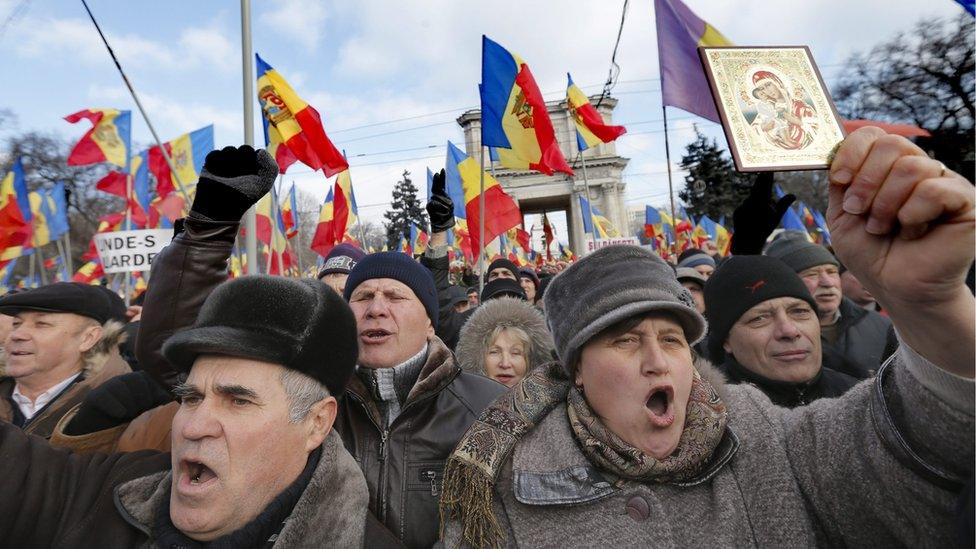
- Published18 June 2015
